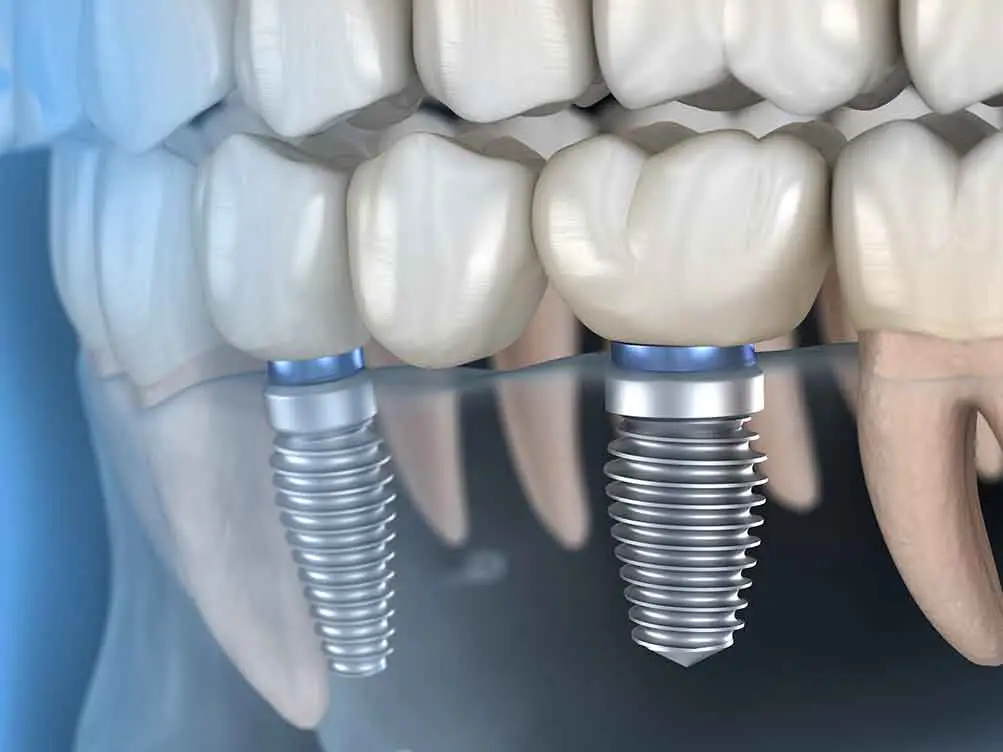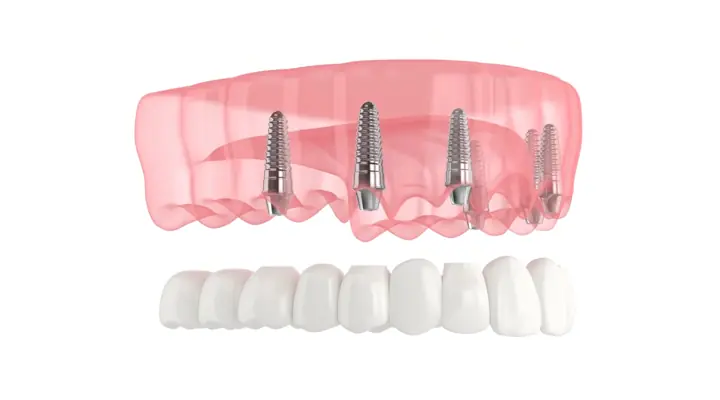Dental implants are one of the long-term choices for restoring lost teeth. In any case, replacing missing teeth is a significant investment because it can benefit your health, looks, and self-confidence for years to come.
But, do you have any idea what it costs? Getting dental implants is like purchasing a personally designed vehicle. However, it’s more than a car part; it combines services, technology, dental professionals’ knowledge, and high-end materials.
The price of the implant
Titanium posts or ‘fixtures’ are placed into your jawbone during surgery. The cost of a single implant can range from $1000 to $3000 (and this is quite pricey for a dental procedure).
Make sure you are eligible
Before implant placement, prior exams are required. Costlier diagnostics like x-rays and potentially a CT scan are part of the certification process. Your eligibility will also depend on the condition of your jawbone and whether you require a bone graft.
Placement Location
Depending on your unique oral condition, dental implants can be implanted with varying degrees of ease. X-rays and scans will be used in the treatment planning phase to provide the dentist with a clear picture of what is in your mouth.
For instance, some persons whose teeth have been missing for a long time have noticed a loss of jaw thickness. If this occurs, bone grafting may be necessary to rebuild the bone before inserting an implant.
Consider this: a deck on a steep hill will require more support than a deck on a flat lawn, and that additional support will cost a little more in terms of time and materials.
Abutment and restoration
After your implant has blended thoroughly with your bone (osseointegration), an abutment, a small connector piece, is placed on top of the implant. This connects the implant to your new tooth (custom-made crown).
The abutment can cost between $100-$500. The restoration price (crown) will be based on the number of teeth replaced, the type of dental crown selected, and the geographic location. A single-tooth crown can cost between $500-$3000.
How many implants will you need?
The number of implants you’ll need is based on which teeth are being replaced and the type of restoration used. For example, replacing a front tooth may only need one implant and a single crown, while replacing all your upper teeth with an implant-supported denture may require four to six implants.
Additional procedures required for placement
In some cases, additional surgical procedures may be required for dental implants to be placed. These can include a sinus lift or ridge expansion and add several hundred to several thousand dollars to the overall cost.
Time and expertise
Dental implants require more time than conventional procedures. Most of the time, the operation necessitates a few appointments, usually separated by healing time. The time commitment of the dentist and dental staff is included in the price of dental implants.
Follow-up appointments
After your implant surgery, you’ll likely need a few follow-up appointments to ensure everything is healing correctly. These checkups are typically included in the price of dental implants.
The cost of dental implants is just one part of the equation. You also need to factor in the long-term value that implants provide. They are durable, long-lasting, and will never decay like natural teeth.
With proper care and maintenance, they can last a lifetime more than you can imagine. In contrast, other tooth replacement options like bridges and dentures have a lifespan of 5 to 15 years and will eventually need to be replaced.
Materials
Dental implants, composed of pure titanium and need careful planning to assure effective surgical insertion, cannot be “discounted” without incurring unacceptable compromises. So instead, we work with patients to make care as accessible as possible, accepting most major credit cards and insurance companies and providing affordable payment plans to those who qualify.
Titanium: the metal of choice for dental implants.
Titanium is the primary metal used in dental implants because it is biocompatible with human tissue and bone. This means that there is minimal risk of rejection or allergic reaction. Titanium is also strong and lightweight, making it ideal for dental implants.
Zirconia: an alternative to titanium.
Zirconia is a newer material that is being used for dental implants. It is also biocompatible and does not require the placement of a metal abutment, which some patients prefer. Compared to titanium implants, Zirconia are more expensive but they may be covered by insurance in some cases.
Gold: not commonly used.
Gold was once the metal of choice for dental implants, but it is no longer used as often because it is more expensive and less biocompatible than titanium.
Stainless Steel: not commonly used
Stainless steel is another metal that was once used for dental implants, but it is no longer as popular because it is less biocompatible than titanium.
Pre-care Requirements
There are some things you need to do before having dental implants placed:
- You need to consult a dentist or implant surgeon to ensure you are a candidate for dental implants.
- You need to thoroughly clean and examine your mouth. If you have any existing dental problems, they will need to be addressed before you can have implants placed.
- You will need to get X-rays and possibly a CT scan of your mouth to create a treatment plan.
Aftercare Requirements
After dental implants are placed, taking care of your new teeth is essential. You should brush and floss them just like natural teeth. It is also necessary to see your dentist or implant surgeon for regular checkups and cleanings.
If you are considering dental implants, the first step is to find a qualified dentist or implant surgeon. The American Academy of Implant Dentistry can help you find a dentist.
Once you’ve found a dentist, you can schedule a consultation to discuss your treatment options and get more information about the cost of dental implants.
At River District Smiles Dentistry, we work with patients to make care as accessible as possible. We accept most major credit cards and insurance companies and provide affordable payment plans to those who qualify.
If you want more information about dental implants or to schedule a consultation, call us today!





